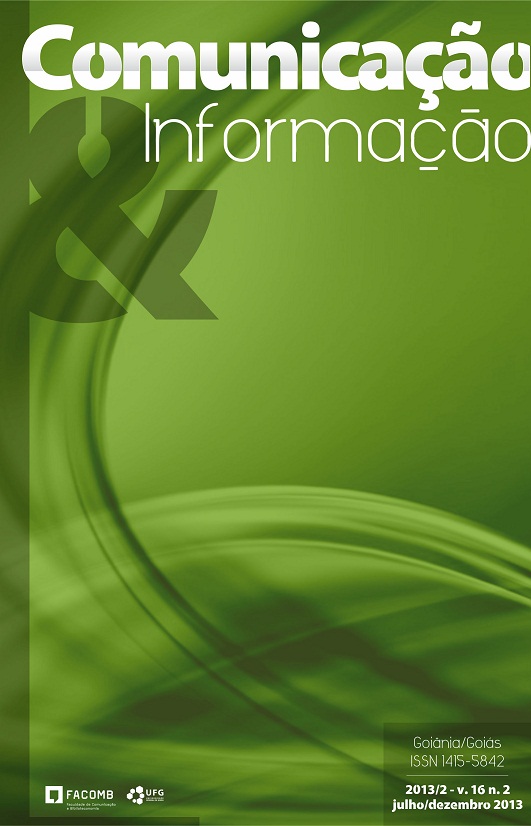Back to the timeline pages: drama and novels in the online journalism
DOI:
https://doi.org/10.5216/c&i.v16i2.26981Keywords:
Journalism. Online journalism. Fait divers. Mosaic.Abstract
The aim of this work is to analyze the journalism in its anchorage on the internet. The historicaldifficulties ofproductions do not exist in the virtual environment; however, the daily analysis shows us that there is not a field of new languages, but the possibility of proffer news with unprecedented speed. The mosaic structure identified by Marshall McLuhan in the newspapers would be applies to online journalism. The object of study are sites of journalistic content, perceived as systems composed like a set of headlines, forming a symbolic field that offers to the reader’s the possibility of not visit the content of the complete news. From this set, we investigated whether there is an assumption that certain types of news stabilize these systems, given the chaotic nature created by the quantity and variety of themes exposed simultaneously . For this, we have been used the Roland Barthes' studies on the structure of the “fait divers", to identifying a category of amazing or fictional stories that soften the fragmented space. This perception indicates that perhaps some aspects of online journalism are like the early days of the newspapers in the 1830s.Downloads
Published
How to Cite
Issue
Section
License
Os autores dos trabalhos publicados na revista Comunicação e Informação retêm os direitos autorais sem restrições e concedem à revista o direito de primeira publicação, com o trabalho simultâneo licenciado sob a Licença Creative Commons Atribuição-NãoComercial que permite o compartilhamento do trabalho para fins não comerciais com reconhecimento da autoria e o privilégio de publicação primeiramente por esta revista. Caso o texto venha a ser publicado posteriormente em outro veículo, solicita-se aos autores informar que o mesmo foi originalmente publicado como artigo na revista Perspectiva, bem como citar as referências bibliográficas completas dessa publicação.
Os direitos autorais dos artigos pertencem aos autores e o conteúdo dos artigos assinados é de responsabilidade exclusiva dos autores.
A revista se reserva o direito de efetuar, nos originais, alterações de ordem normativa, ortográfica e gramatical, com o intuito de manter o padrão culto da língua, respeitando, porém, o estilo dos autores.
A revista também se reserva o direito de traduzir o artigo, no todo ou em parte, para o inglês ou para o português, dependendo do idioma em que o artigo tenha sido escrito originalmente.



